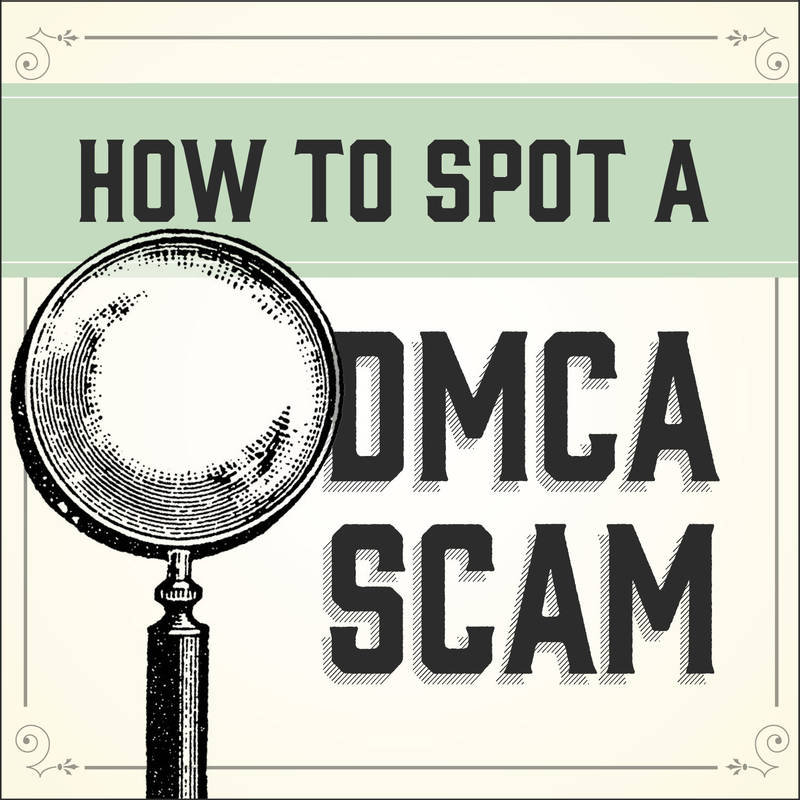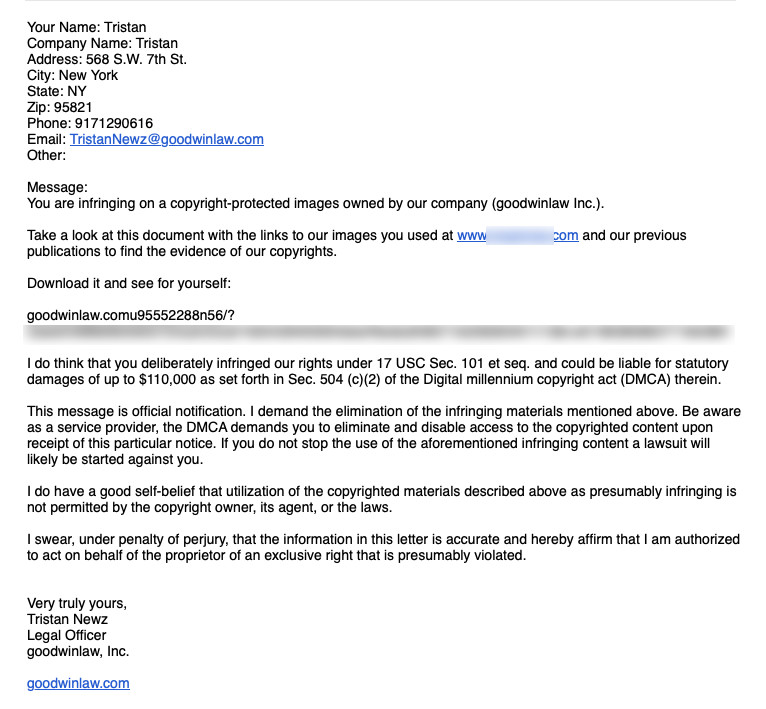

It’s important to make sure your advertising complies with all laws and regulations to protect your business from liability. At Invisible Ink, we only use original artwork or licensed imagery to design logos, advertisements, and websites, but occasionally someone will question the authenticity of an image or design asset in a client’s advertisements. As a business owner, it is important to make sure you know how to distinguish between a legitimate legal notice and a scam in order to protect your company.
If you’ve been contacted by someone claiming you are using their images without permission, how do you know if their Digital Millennium Copyright Act (DMCA) takedown request (and accompanying fine) is legitimate?
Let’s take a look at a message one of our clients received stating their website is using images without the proper licensing to look for some red flags that indicate the takedown request might be a scam. Here's a screenshot of the request:

Red flag #1: The request was submitted through a website contact form. Legitimate takedown requests will almost always arrive in the mail as a hard copy cease and desist or DMCA takedown notice with a fine for damages. Legal notices are rarely served via email, and certainly don’t come through a generic contact form on your website.
Red flag #2: The link to proof of supposed infringement is not functional and looks suspicious, like most phishing campaigns.
Red flag #3: The attorney representing this law firm is not listed on the company website.
Red flag #4: Multiple paragraphs contain poorly written sentences with grammatical errors. A real law firm would likely proofread their legal notices.


Red flag #5: This notice states that the law firm owns the copyright to the images. This is highly unusual since typically the client they represent would be the copyright owner.
Red flag #6: Signing off with “very truly yours” is pretty unprofessional for a takedown notice threatening legal action.
And the final and most obvious reason this notice is fake? All of the photographs on this particular website were taken by a local photography company specifically for the client, and the images depict the client’s facilities, products and machinery.
If your company receives a notice like this it’s safe to assume you can ignore the takedown request and any demand for payment. When in doubt, you can always forward a copy to your own attorney or legal advisor for confirmation.
Posted March 07, 2024